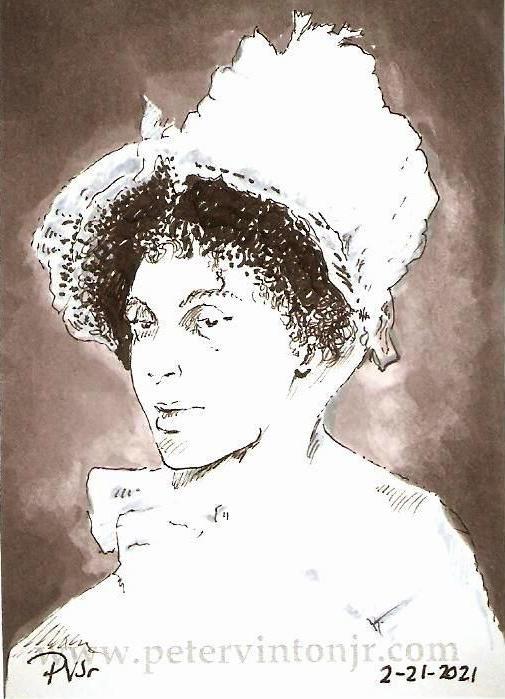
An ongoing illustrative history study
This piece originally posted 5/23/2021
Prelude | 83 | 84 | 85 | 86 | 87 | 88 | 89 | 90 | 91 | Email |
|---|
"All that we ask for is justice, not mercy or palliation --simple justice. Surely that is not too much for loyal citizens to demand?"
Florida Ruffin Ridley (she pronounced her first name "flor-EE-dah") was born in 1861 Boston to George Lewis Ruffin (the first African-American graduate of Harvard Law School and the first Black judge in the U.S.), and writer and suffragist Josephine St. Pierre Ruffin (see Lesson #40 in this series). With such a background, perhaps it was inevitable that Florida would herself soon step onto the national stage for the cause of women's suffrage and civil rights.
Ridley followed in her mother's footsteps as editor of The Woman's Era, the first newspaper published by and for African American women. She graduated from Boston Teachers' College in 1882 and was among the first African Americans to teach in Boston's public schools. After marrying tailor Ulysses A. Ridley in 1896, she and her husband moved to Brookline, Mass., where they became that town's first African American homeowners. A self-admitted history buff, she co-founded the Society for the Collection of Negro Folklore in 1890, and founded the Society of the Descendants of Early New England Negroes in the 1920s. In this latter role, she advocated for equality in the education of young children and successfully pushed for Black children to be able to attend kindergarten --previously a privilege reserved only for white children.
"The idea of a Woman's Club, not necessarily a colored woman's club, but a club started and led by colored women had been dormant in the minds of a few women of Boston for some time. Of [white-led] women's clubs there seem to be no end... [t]here was so much danger that numbers of [colored women] would be over-looked unless some special appeal was made to them, that in February last, at the time Miss [Ida B.] Wells was creating so much interest in her crusade against lynch-law, it was a good time to carry out the club's idea, call the women together and organize, not for race-work alone, but for work along all the lines that make for women's progress."
--from an antilynching essay by Ridley in the very first issue of The Woman's Era, 1894
Next page - Lesson 88: Whitney M. Young, Jr.